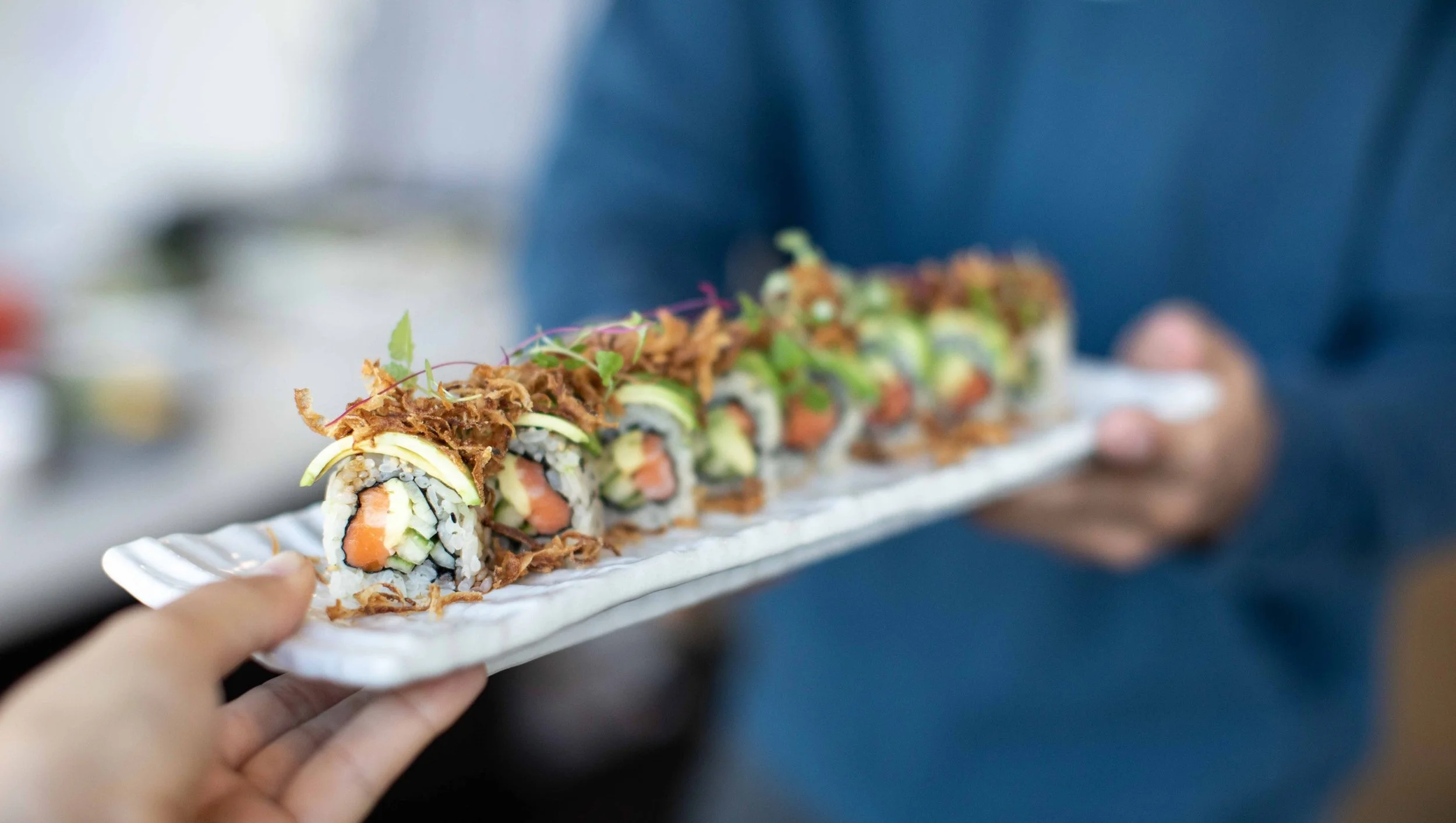Cultivated Seafood Company Wildtype Announces First U.S. Retail Partners
Wildtype takes the next step in bringing sustainable, affordable cultivated salmon to U.S. grocery stores and restaurants.
Credit: Wildtype
Cellular agriculture company, Wildtype, has announced plans to bring sushi-grade cultivated (e.g. lab-grown) salmon to sushi bars and grocery stores in the United States.
Cultivated products in the U.S. are still awaiting FDA approval, but in anticipation for when that time comes, Wildtype has signed an agreement this week with two companies that serve the salmon as soon as the red tape is cut. Pokéworks is a fast-casual restaurant operator with 65 stores, and Snowfox is a sushi bar that operates within 1,230 grocery locations.
“This is a significant milestone as we move closer to bringing our cultivated salmon to restaurants, grocery stores, and eventually kitchen tables across the U.S.,” said Aryé Elfenbein, Wildtype’s co-founder and Chief Scientist.
Wildtype, a San Francisco-based company, is striving to combat the ocean devastation caused by the fishing industry by bringing affordable and accessible cultivated seafood to the masses.
“Wildtype was founded on the notion that if we give people a delicious, nutritious alternative to conventionally produced seafood, there would no longer be a reason to continue placing undue strain on the biodiversity of our oceans and waterways,” said Elfenbein.
The start-up company uses a small number of salmon cells to create fish a brewery-like cellular agriculture system - this removes the need for fishing or fish farming. Wildtype’s pilot plant currently manufactures around 50,000 pounds of seafood per year. At maximum capacity, the company will be able to produce nearly 200,000 pounds of lab-grown fish annually.
Wildtype claims its sushi-grade salmon is packed with omega-3 and omega-6 fats and has all the nutritional benefits of wild fish, without any of the microplastics, mercury, parasites, or other common toxins.
“We are proud to partner with Wildtype to help pioneer a new technology for sustainable seafood,” said Mike Chen, Pokéworks co-founder and president. “With advances in cellular agriculture, we will be able to offer our guests premium salmon protein while lessening the impact on ocean populations.”
The Future Of Food
Cultivated meat is one of the leading solutions to eliminating factory farms and making the suffering of animals in the farming industry a thing of the past. And because it’s crafted in a lab rather than via animals on a farm, it’s healthier than conventional meat because it contains no antibiotics.
There are more than 70 companies working on developing cultivated meat inputs, services, or end products, according to Good Food Institute, and with $506 million invested so far this year into cultivated meat firms, the sector is already far surpassing previous years. Singapore became the first country to grant approval for the commercial sale of cultivated meat, with Qatar expected to follow. Meanwhile, in Europe and America, companies continue to work through regulatory processes.
And it’s easy to see how alternative proteins are already beginning to transform the industry: food tech UPSIDE Foods recently opened a huge state-of-the-art cultivated meat facility, capable of producing up to 50,000 pounds of meat per year, while JBS, the world's largest producer of animal protein, announced an investment of US $100 million in cultivated meat manufacturing earlier this year.
Fascinated by cultivated meat? Check out our podcast focus The Future of Food - where we talk with the game-changers who are leading the way toward a world without factory farms and slaughterhouses.
More stories:
Species Unite
A collection of stories of those who fight the good fight on behalf of animals.




The blue whale, Mexican wolf and much other American fauna and flora may soon go the way of the passenger pigeon and ivory-billed woodpecker.